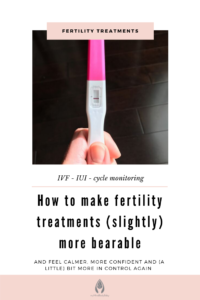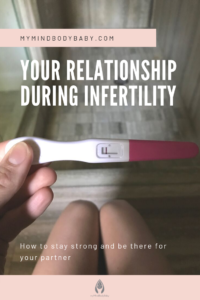“Preparing for Fertility Treatment: Questions to Ask Your Doctor” | myMindBodyBaby
Full disclosure: I love science and research and my undergrad is in biochemistry. So while half of me was terrified to start our IVF journey, the science geek inside of me was curious to understand the science experiment my body was about to become. But I get that some people don’t have the same passion for science and possibly avoided science classes like two protons. See what I did there? Ok, ok, no more science jokes; however, understanding a little bit of science is helpful to help prepare for fertility treatments. There are some great fertility doctor’s out there in Insta-world posting valuable information that I wish had been around when I was going through my fertility treatments:
- Dr. Candice Perfetto @candiceperfettomd
- Dr. John Couvaras @ivfphoenix
- Dr. Natalie Crawford @nataliecrawfordmd
- Dr. Shvetha Zarek @drzarekinfertility
- …. to name just a few!
Why should you understand what is going on to prepare for fertility treatment?
Some people prefer to ostrich their way through fertility treatments (read: head in the sand). Part of me gets this. The whole thing is A LOT! It is overwhelming and you might be thinking it is easier to leave it to the experts. There are two main reasons we advocate that you have a general sense of what is going on in your body during fertility treatments:
1. It will help you with your positive visualizations, and
2. It will help you to ask advocating questions.
Advocating questions…?
 Be your own advocate. If something doesn’t seem right, question it. If something doesn’t feel right, let your medical team know. At times I felt like I must have been the most annoying patient at my fertility clinic. But you know what? Asking questions and understanding what was going on in my body let me feel somewhat in control of my situation. It also led to some changes that made me feel more comfortable – mentally and physically. Sometimes there are alternative medication formats that you might tolerate a little better. Or there may be options to help manage some side effects – but you need to let your medical team know what’s going on. There also may be some flexibility with the schedule. Have a big presentation at work? Or a weekend getaway planned? Or your partner is going to be out of town on a certain day and you’d like them there for support? During some cycles timing is very critical – but at some points there can be a little give or take.
Be your own advocate. If something doesn’t seem right, question it. If something doesn’t feel right, let your medical team know. At times I felt like I must have been the most annoying patient at my fertility clinic. But you know what? Asking questions and understanding what was going on in my body let me feel somewhat in control of my situation. It also led to some changes that made me feel more comfortable – mentally and physically. Sometimes there are alternative medication formats that you might tolerate a little better. Or there may be options to help manage some side effects – but you need to let your medical team know what’s going on. There also may be some flexibility with the schedule. Have a big presentation at work? Or a weekend getaway planned? Or your partner is going to be out of town on a certain day and you’d like them there for support? During some cycles timing is very critical – but at some points there can be a little give or take.
The science experiment continues.
With each procedure your medical team (and you!) learn more about how your body responds. It’s like collecting clues along a secret fertility path.
I was intially prescribed Clomid for our first IUI, but my lining really didn’t get up to where the doctors would normally like to see it. So the doctors learned Clomid wasn’t a good option for me. I also started to ask how my lining was measuring each month. Did my questioning change the course of future treatments? Probably not. We did delay one round of IUI a few days until my lining was a little thicker. But I suspect this was likely more for my own peace of mind and to help keep my mental state in the positive zone. But, hey – that’s ok! Staying positive is a win in itself. It also made me feel a little more in control. I also learned I could ask more informed questions and that this was ok.
Find ways to make the whole process slightly more bearable.
 During our IVF I was prescribed vaginal estrogen tablets, a common protocol. These were uncomfortable, caused bleeding, irritation and my estrogen levels were not even responding as they would have liked. They told me to increase the tablet dosage. I asked what other formats of estrogen were available and they eventually revealed that estrogen patches were an option. They were more expensive and not part of their standard medication protocol, and so not something they typically offered. I pushed to use them (my insurance covered the additional cost), and I was more comfortable – plus my estrogen levels improved. Win, win.
During our IVF I was prescribed vaginal estrogen tablets, a common protocol. These were uncomfortable, caused bleeding, irritation and my estrogen levels were not even responding as they would have liked. They told me to increase the tablet dosage. I asked what other formats of estrogen were available and they eventually revealed that estrogen patches were an option. They were more expensive and not part of their standard medication protocol, and so not something they typically offered. I pushed to use them (my insurance covered the additional cost), and I was more comfortable – plus my estrogen levels improved. Win, win.
Post Game Analysis
This is an important step in preparing for future fertility treatments. If you are coming off of a failed procedure and your clinic hasn’t schedule something like this, book an appointment. During this appointment the doctor or nurse will review the medications you took, how your body responded, the potential reasons this round didn’t work and how your protocol could be altered next time. Regardless of whether you book this appointment, your medical team will review your results and tweak accordingly next time. But this appointment is important for YOU. It can give you some closure and can help you understand what is going on in your body a little better. It can also give hope as you prepare for another fertility treatment. This round didn’t work because of X, Y or Z – but next round, dosages will be tweaked, or different medications will be used – and all of a sudden, there is more room for hope.
What are some questions you can ask your medical team?
It can be overwhelming to sit down with your doctor. You are sad. You are frustrated. And you don’t know what to say or ask. Here are a few questions to get you started:
- Did my body respond as expected to the medications?
- Is there anything with the medication we would change next time?
- Are there variables that were outside of the norm during this cycle?
- Are there variables we can better control next time?
If you’ve gone through IVF here are some more questions:
- Can we learn anything from the number of eggs retrieved?
- Can we learn anything from the ratio of eggs retrieved to fertilized? Fertilized to Day 3? Day 3 to Day 5?
- Can we learn anything from the quality of the resulting blastocysts?
- Why did / didn’t we proceed with a fresh transfer?
- What are the benefits of pre-implantation genetic screening (PGS) next time?
- What are the benefits of intracytoplasmic sperm injection (ICSI) and is it right for me?
- What are the benefits of an endometrial receptivity array (ERA) and is this something we should consider?
Here are some IUI specific questions you can ask:
- How many eggs made it to the required size?
- Was the quality of the sperm sample within normal range?
If you’d like a printable version of this list with space to add your own questions, click below – you can bring this to your next appointment.
24]
Questions you can ask yourself.
You can also hold a post game analysis with yourself and your partner, if you have one. Your physical response to a fertility treatment is important to understand, but also important is your mental and emotional response.
Stronger together.
 If you are embarking on this journey with a partner it is so important to communicate. Your partner is not a mind-reader. Tell the other how you are feeling in the moment. Let them know when you are feeling sad, in pain, discouraged – and, importantly, optimistic! And encourage them to do the same. You may not be feeling the same things at the same time, and it is easy to snap at each other during this time of intense emotions. Or you might feel like you are drifting apart if you feel the other doesn’t understand the mental or physical difficulties you are struggling with. Many couples have stated infertility has brought them even closer together as you face the challenges, ups and downs together – but it takes a lot of communication, a lot of love and a whole heap of empathy. Need some help starting the conversation with each other?
If you are embarking on this journey with a partner it is so important to communicate. Your partner is not a mind-reader. Tell the other how you are feeling in the moment. Let them know when you are feeling sad, in pain, discouraged – and, importantly, optimistic! And encourage them to do the same. You may not be feeling the same things at the same time, and it is easy to snap at each other during this time of intense emotions. Or you might feel like you are drifting apart if you feel the other doesn’t understand the mental or physical difficulties you are struggling with. Many couples have stated infertility has brought them even closer together as you face the challenges, ups and downs together – but it takes a lot of communication, a lot of love and a whole heap of empathy. Need some help starting the conversation with each other?
Here are some questions to begin with.
- What was the hardest part for you during this past cycle?
- What would make this process a little easier next time?
- Are you ready to try again next month or do we need to take some time off?
- How can I help you the next time?
Finding a little more help.
Sometimes couples need a little more help. Some fertility clinics have a counselor on staff to speak with. If yours doesn’t or you would like to explore other options, see if there are any local therapists that specialize in fertility. Amara Posner, one of our Experts, offers couples counseling.
How are you managing at work?
The appointments, the stress, and the physical side effects – it can take its toll on you as an employee. Do you have the ability to take some time off at key points in the next cycle? Are you comfortable speaking to your manager about what you are going through? Is there a co-worker you can confide in? Assess if there are options to ease the work day stress during your next cycle. You can also try to fit in a few minutes of meditation during your day. Here is a work-day mindfulness guide to help you find some solace during the 9-5:

Are you managing to sustain healthy habits?
Some people turn to food to manage stress. While the occasional indulgence is not going to make or break a cycle, now, more than ever, is a time to ensure you and your partner are properly nourishing yourselves. Food is the fuel for your body, and you and your partner are the building blocks for a healthy baby. Fertility schedules can take up a lot of time, making it even harder to find time to prepare healthy meals. Try planning your meals ahead of time, making larger servings to have healthy leftovers on hand, and keeping health snacks available to turn to. Our Infertility Fitness & Nutrition Guides provide you with 12 full weeks of meal plans and grocery lists to keep you stocked up on fertility-friendly, easy to prepare meals and snacks. Want a few recipes to get you started? Grab a free copy of our Mood Boosting, fertility-friendly recipe booklet:
20]
Keep moving.
Staying physically active is also important. Exercise be used as a tool to manage stress, it helps to release mood-boosting endorphins, and keeps healthy, oxygenated blood pumping throughout your body. Exercise can be intimidating during fertility treatments, especially if exercise hasn’t been a big part of your life to date. This isn’t a time to start training for a marathon, but it is perfectly safe and, in fact, beneficial to maintain regular, moderate exercise in your life. Exercise can also provide a new way for you and your partner to connect. Fertility challenges can impact your intimacy – the bedroom, which once may have been a place of spontaneous and pleasurable intimacy, can become a place of scheduled, necessary intercourse. It can help to find different ways to connect and bond during this time. Going for a walk after work or exploring a new place to hike on the weekend can give you some non-baby-making time together. If you’d like a fertility friendly workout can you do on your own (or with your partner!) give this one a try:

Here we go again.
Preparing for fertility treatment can be daunting. We hope that by arming you with some questions, tools and resources you can go into the next round feeling a little more prepared, a little more in control and with a little more hope, optimism and positivity.




